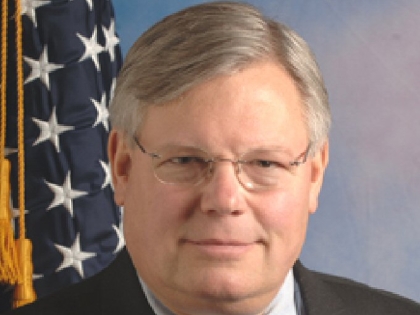
Senator Duane and Assembly Member Kellner Criticize MTA Plan to Slash Millions From Access-A-Ride Program
Thomas K. Duane
December 16, 2009
MTA PLAN TO SLASH $40 MILLION THIS YEAR, $80 MILLION THE NEXT, FROM ACCESS-A-RIDE WILL LEAVE DISABLED RIDERS STRANDED
MTA Fails to Take Advantage of Existing Proposal to Save $50 Million Annually Without Cutting Services.
(New York, NY) – Assembly Member Micah Z. Kellner, State Senator Thomas K. Duane, disabilities advocates, for-hire vehicle industry representatives, and Access-A-Ride users gathered in front of Selis Manor in Manhattan this morning to oppose the MTA’s plans to slash the Access-A-Ride operating budget. Access-A-Ride, New York City Transit’s paratransit service, is the only mode of transportation for people with disabilities who are unable to take regular mass transit. The MTA has proposed cutting $40 million from its operating budget this year, and $80 million the next.
No written plan exists detailing how Access-A-Ride is expected to absorb these costs. Transit officials have shared only that they plan to examine their “legal obligation to provide door-to-door services.”
“Last fall I met with the MTA and proposed that Access-A-Ride users be issued debit or credit cards to use in New York City taxis, black cars, and liveries. MTA officials said they liked the idea and would implement a pilot program,” said Assembly Member Micah Z. Kellner. “To my severe disappointment they have yet to do so. The city has estimated that a debit or credit card system would save taxpayers $50 million a year in paratransit services—that’s $10 million more than the MTA says it must cut. I have heard from the for-hire vehicle industry that they are excited about what this could mean for their businesses, and they have worked out a plan with credit card providers to make it work. Instead of proposing outrageous cuts, how about using this crisis as an opportunity to spur innovation?”
“While we recognize the MTA’s dire fiscal crisis, it is unconscionable that it has proposed millions of dollars in cuts to Access-A-Ride, which serves one of our City’s most vulnerable populations,” said State Senator Thomas K. Duane. “For over a year, the MTA has known about Assembly Member Kellner’s proposed program to overhaul Access-A-Ride – a plan that would both save money and improve service by using taxis, black cars and liveries to serve mobility-impaired New Yorkers – but it has failed to act. Now, the MTA is balancing its budget by cutting services for our City’s disabled and older residents. A tremendous opportunity to provide better service to our mobility-impaired population, and lower costs in the process, has been missed and the MTA has only itself to blame. The MTA may feel like lashing out, but it should pick on a group its own size - perhaps one that matches its own bloated bureaucracy and management.”
"Without question, we are in extraordinary economic times," said Manhattan Borough President Scott M. Stringer. "But the MTA has approached their financial difficulties with cuts to the New Yorkers that can least afford it. We all will have to make sacrifices, but riders with disabilities should not have to sacrifice their role in the larger community or be confined to their homes because of the MTA's poor planning and mismanagement."
“We are honored to stand with Assemblyman Kellner and Senator Duane in their efforts to include the For-Hire industry in servicing Access-A-Ride members. Hoping for this day to come, we have developed the technological capability that will allow Access-A-Ride customers to use their own credit card as proof of membership, waiving the need for a debit card. The use of credit cards will make the process of paying for a trip seamless and aligned with the goal of non-discriminatory service,” said Avik Kabessa, CEO, Carmel Car and Limousine Services.
"Any cuts to Access-A-Ride will diminish the already poor service it provides to persons with disabilities. We believe that the introduction of a "smart" or debit card for Access-A-Ride consumers to access taxi and community car services will not only substantially reduce costs but provide better service to consumers as well," said Marvin Wasserman, Executive Director, Brooklyn Center for Impendence of the Disabled.
“We are opposed to changing Access-A-Ride so it is not door-to-door. It is unrealistic to ask that Access-A-Ride users wait outdoors, when wait times can be up to an hour at times, in extremely cold or hot weather, rain or snow. There are many factors that make this potentially harmful. Blind and visually impaired riders often have chronic medical problems. We urge that the MTA not implement this,” said David H. DePorte, President, Guide Dog Users of New York.
“Access-A-Ride users are the last people who should be expected to shoulder the burden of closing a budget gap because they have already proved, by virtue of their receipt of these services, that they have no alternatives for transportation,” said Linda Ostreicher, Director of Public Policy, Center for Independence of the Disabled of New York.
“MTA has failed to carry through the plan for the smart card trial,” said Edith Prentiss of Disabled in Action. “It seems as though they are penalizing Access-A-Ride users for the agency’s own inefficiencies.”
“Service cuts cannot be made on the backs of people with disabilities and subways and buses cannot accommodate large numbers of people with disabilities. The MTA needs to find cheaper ways to transport us, such as a smart card taxi program and using smaller accessible vehicles like the forthcoming MV-1,” said Jean Ryan, VP for Public Affairs, Disabled In Action.
###
Share this Article or Press Release
Newsroom
Go to NewsroomMarch 2010 Community Report
May 4, 2010
April 2010 Community Report
May 4, 2010